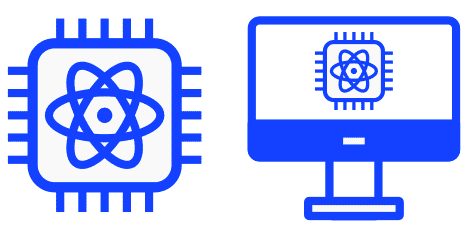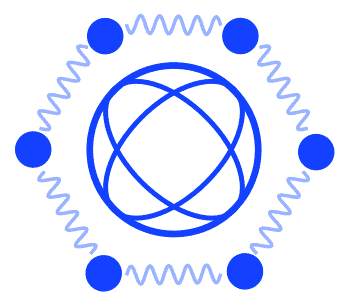Our Themes
Quantum Measurement and Sensing

This is the area of Quantum Technologies closest to applications and product development. Aligned research initiatives include the Glasgow University-led QT Hub in Quantum Imaging (QuantIC) and Strathclyde University’s involvement with the QT Hub for Sensors and Metrology.
CDT candidates will work within groups undertaking research in quantum-enhanced imaging including sub-shot noise imaging, imaging through complex media, non-line-of-sight imaging, and time-correlated depth imaging with single photons and photon pairs, with applications to healthcare, security, defence and space.
The partner Universities regularly participate in Dstl and NATO field trials and have delivered impact in the consumer electronics, defence, and automotive industries. Future PhD projects will use correlated and entangled photon pairs for quantum imaging in complex media, and we will run joint theory and experimental projects on quantum LIDAR with Dstl.
Current work on atomic clocks and quantum sensors includes chip-scale atomic clocks and sensors for position, navigation and timing systems as part of a collaboration between SU and GU, including the James Watt Nanofabrication Centre and industrial partner KNT.
Future PhD projects will build on this collaborative work and will use miniaturised magneto-optical traps and atomic systems to build matter-wave quantum sensors for, e.g., autonomous navigation systems and space applications.
The underpinning photonics technology includes lasers and optical delivery systems, provided by the Institute of Photonics , together with Fraunhofer, KNT and Alter Technologies. Infrastructure for advancing atomic clocks is currently being established at the NPL Innovation Node of the National Timing Centre at SU.
Within quantum magnetometry, accurate magnetic field measurements provide a means of imaging the human heart and brain, under the surface of the ground and oceans, and for materials sci-ence. Our future PhDs will develop the next generation of atomic magnetometers, in parallel with new applications in biomedical imaging and national security with joint projects and field trials with the Navy, AWE, Dstl, F-CAP and BGS. Our research in spin-based quantum sensors explores scalable coherent spin control enabled through micro-cavity exciton-polaritons and how to harness solid-state spins as quantum sensors for applications in quantum-enhanced bio-sensing and nanoscale magnetic-resonance imaging. In this area, we also have recently created a state-of-the-art Quantum Magnetometry Facility at HW for the development of novel 2D quantum materials. We also have ongoing research activities in quantum sensing for healthcare and bioimaging, where we aim to improve temporal resolution for neuron, cardiac and cancer cell imaging.
Quantum Computing and Simulation

Our research programme in Quantum Computing and Simulation includes platforms based on ultra-cold atoms, superconducting circuits, and photons; and covers circuit models, quantum annealing, and measurement-based approaches to quantum computing. It also includes a strong theoretical base in Quantum Information and Quantum Algorithms.
Research into scalable quantum computing based on neutral-atom arrays includes a 100-qubit system and a new setup in development for performing quantum error correction. PhD projects could cover both experimental and theoretical aspects of demonstrating practical quantum advantage.
Cold-atom based quantum simulators including quantum-gas microscopes have been supported by EPSRC and the Oxford-led QT Hub for Quantum Computing and Simulation. Future PhD projects will investigate dynamics of many-body quantum systems and Bose-Einstein condensates, and cover work in quantum fluids.
Research on quantum computing with superconducting circuits brings together QT and ICT researchers and industry partners from across the UK to work on light-matter interactions, interfacing superconducting and spin qubits with optical signals, both in experiment and theory. In the area of foundations of quantum computing, future PhD projects could include quantum theory, models of quantum computation, architectures, control & characterization, and open systems decoherence. There is also aligned work on quantum algorithms for data analysis for use in gravitational wave detection.
Quantum Communications

Our consortium plays a major role in the national effort to progress quantum communication and entanglement networking at all scales, in particular through involvement in the Quantum Communications (QC) Hub.
The (terrestrial) quantum networking portfolio spans networks with untrusted nodes, including non-linear and solid-state photon sources for long-distance QC and multi-user entanglement network protocols, matter qubits for quantum memories and repeaters, and superconducting and semi-conductor single-photon detectors.
Activities in space-based QT include satellite quantum key distribution, where SU leads the EPSRC International Network in Space Quantum Technologies. Through the QC hub, HW and SU are involved in the UK-led CubeSat mission SPOQC, and are partners to international in-orbit missions SPEQTRE and QEYSSat.
Applied work is complemented by theory on simulating satellite quantum channels and environmental effects, advanced QC protocols, and daylight free-space QKD. PhD projects supporting QC in space are likely to be carried out in partnership with industry partners while further projects in quantum communications theory include quantum security proofs, certification and advanced protocols such as tokens and quantum digital signatures, quantum amplifiers, and post-quantum cryptography in collaboration with the National Cyber Security Centre.